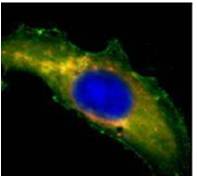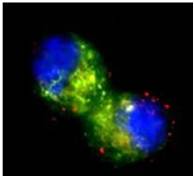
Breast cancer is the most common cancer in the UK, affecting 46,000 women each year. HER2, a cell surface receptor belonging to the family of epidermal growth factor receptors, is over-expressed in 30% of breast cancer patients, and these “HER2 positive” patients respond well to HER2-targeted therapies.
New research published in BMC Medicine by Parul Gupta and Sanjay Srivastava from Texas Tech University shows that phenethyl isothiocyanate (PEITC), a compound present in cruciferous vegetables, is a promising new treatment for HER2 positive breast cancer.
Breast cancer patients over-expressing HER2 respond well to treatment with trastuzumab (Herceptin), a monoclonal antibody therapy targeting HER2.  While this therapy is effective in many patients, problems with resistance and adverse effects limit its usefulness in others. There is thus a continued need for the development of new HER2-targeted therapies.
While this therapy is effective in many patients, problems with resistance and adverse effects limit its usefulness in others. There is thus a continued need for the development of new HER2-targeted therapies.
Gupta
and Srivastava showed that PEITC causes apoptosis, or programmed cell
death, in HER2-expressing breast cancer cells and in a mouse model.
Additionally, the authors found that PEITC enhanced the effects of the
chemotherapy drug doxorubicin in HER2 breast cancer cells.
Together,
the results indicate that PEITC is a potential new therapeutic option
for HER2 positive breast cancer, both alone and in combination with
doxorubicin. Combination therapy is a promising approach for breast
cancer treatment in order to overcome the problems with resistance
associated with single-agent therapies; for example, a new clinical trial will be underway in 2013 to assess the efficacy of trastuzumab with the interleukin-6 inhibitor tocilizumab.
 Combination
Combination
therapy involving doxorubicin is an important consideration for breast
cancer patients; while doxorubicin is an effective treatment for breast
cancer, it is associated with risk of cardiotoxicity
at high doses. It is thus important to identify new therapies that can
be used together with doxorubicin to reduce its dose without
compromising the therapeutic effects.
The
results of Gupta and Srivastava’s study suggest that a
PEITC-doxorubicin combination could be effective in breast cancer
treatment, overcoming the problems associated with doxorubicin at high
doses. Following this study, the results should be validated in clinical
trials of HER2 positive breast cancer patients, and could lead to the
development of an effective new combination therapy for breast cancer.
Do you accept any articles in humanity, oral history, research methods, women writings